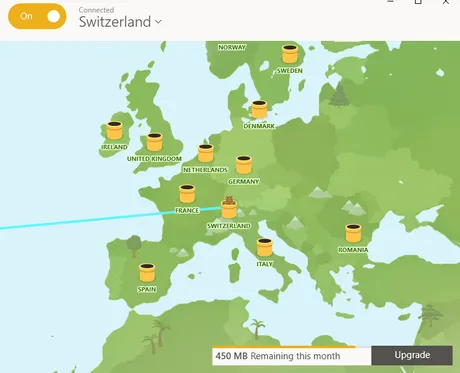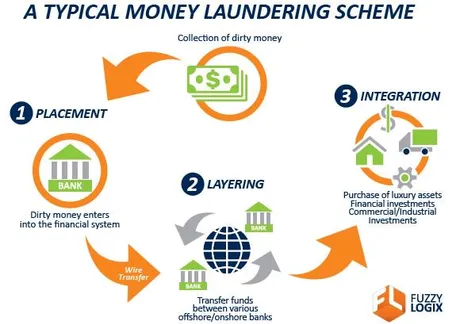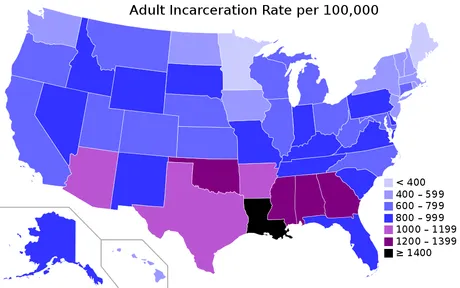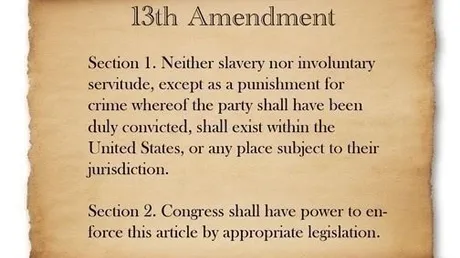
Many of have us have already heard the term "mixing" and "tumbling" in reference to Bitcoin. However, perhaps like me, we didn't really know how it worked. After all, what's the point? It's basically a sketchy thing to do used to launder money, right?
I have nothing to hide!
At its core, mixing and tumbling Bitcoin is all about privacy and making it much harder to track who owns what. Regulators/authoritarians make the claim that the only reason to have privacy is to break the law. Obviously, that's ridiculous and privacy is largely considered a basic human right. This concept is even reflected in the constitution itself under the 4th Amendment:
The right of the people to be secure in their persons, houses, papers, and effects, against unreasonable searches and seizures, shall not be violated, and no Warrants shall issue, but upon probable cause, supported by Oath or affirmation, and particularly describing the place to be searched, and the persons or things to be seized.
It is true that privacy would not be necessary in the event of our centralized institutions being 100% trustworthy and also assuming they'd never make a mistake. Unfortunately, the chance of that happening is 0% in every universe.
Privacy matters!
At first I thought Bitcoin tumbling and mixing were two different things. Turns out they really both mean the same thing. I also thought that these things happened on-chain and that they would become prohibitively expensive as on-chain fees skyrocketed.
Wrong on all counts! Ass-u-me...
I guess that's what I get for assuming. Many mixing/tumbling services have been shut down over the years because of the dubious legal aspects of providing such a service. Obviously if it can be shut down, it's not decentralized and it's not on chain. In fact, when it really comes down to it: mixing/tumbling is really no different than using an exchange. In fact using an exchange is smarter depending on circumstance.
When you send Bitcoin to a tumbling service, you are trusting them to send your Bitcoin back to you (minus a nominal fee, of course). You are trusting them to "wash" your Bitcoin and send it to another address that severs the connection to the previous on-chain history, making on-chain analysis of the funds near-impossible.

No point in using a mixer.
So imagine a dozen people send 1 BTC to a mixing service. That centralized mixing service will then scramble that money around using various tactics and each person will gain control of someone else's money, cutting all ties to the previous history of all the money.
The problem?
On-chain analysis is always getting better, and you have to trust the centralized agent just like we would a centralized exchange. Why not just use a centralized exchange instead?

Take my recent powerup for example. Where did this money come from? What is the history of this value? Did I have 63k Hive sitting on Binance? Did I have 63k Hive sitting somewhere else, and then move the money to Binance and then move the money to my wallet? Did I buy the Hive with Bitcoin or another crypto? Did I buy the Hive with USD or another fiat? Only two entities know the answer to these questions: me and Binance.
Paying for trust
Once again, it all comes down to trust. If I can trust Binance to keep my financial information private more than I can trust a random tumbling/mixing service, there is absolutely no reason to use the mixing service. All of the money that exits these hot-wallets is very private unless the corporation that controls it willingly gives up the information. The same is true with a mixing service.

Big IF! I <3 Binance Mafia!
Seriously though right? Fuck Binance! They attacked Steem, and without their help The Interloper would have never been able to hostile takeover the network. However, as I have stated many times, corporations are largely neutral, and our irrational hate of Binance stems from being the victims of collateral damage.
Binance knows what's up.
I highly doubt that Binance is going to give up their information to any government agency. It would look very bad for them and they've gone through a lot of trouble to avoid that scenario. This is why Binance.US exchange exists. By providing an exchange that is in compliance with US regulations Binance can simply feign compliance and act like they "are doing everything they can". LOL.. CZ is so full of shit I love it.
Again, these guys have "spiritual headquarters" in a dozen countries. No one even knows the logistics of their operations. When you start doing deep dives on this situation, it's actually pretty wild. Binance is on board for borderless economies. They protect the privacy of their clients, not only to protect said client, but also to protect themselves.
Their policy is quite clear: or more accurately opaque. When wLEO got hacked, the hacker used a Binance account that had a history of theft. If that's not protecting the privacy of clients, I don't know what is. As far as I know, this account is still active to this day.

So if known hackers can reuse the same Binance account for their exploits... that's actually pretty solid proof that the corporate policy here is extremely tilted in the favor of privacy and protecting clients and the company from outside meddling. Again, Binance mafia is a completely double-edged sword, as are most of these non-KYC exchanges.
NON-KYC
Binance, Huobi, Kucoin, Ionomy, and however many others... The times are changing. Making an account on these exchanges is as easy as providing an email address. I repeat, making an online shadow-banking account accessible worldwide is as easy as creating a throw-away email account. Take a moment to reflect on that... because it's completely insane when we think about it in those terms and compare it to the old SWIFT system of banking.

A Swiss bank account in your pocket.
Not even an exaggeration. Even the exchanges that are banning American IP addresses can be easily circumvented with VPNs (which are also offered for free these days). Oh, look at that, I live in Switzerland now.
The best part about all of this? Exchanges don't actually care. They ban US IP addresses because they don't want to get in trouble with the regulators. If you then use a VPN to access their service, they still know exactly what you are doing, but by using the VPN you are protecting them legally, so they'll just let you continue using the platform because they make money off of your trades.
Capitalism!
So what's a better way to mix Bitcoin? Pay some mixing service to do it? Or turn it in to a dozen other currencies and funnel that value through hot-wallets that have millions of dollars in volume per day?
Certainly, there is a case to be made for using the mixing service for privacy. Their only stated goal is to protect your privacy. That's got to be worth something. At the same time a niche mixing service is not going to have a lot of volume, and they are constantly under the microscope of regulators. That's not the kind of attention someone looking for privacy wants.
Worse-case scenario
So let's say you're mixing and tumbling money around for privacy reasons on Binance, and Binance decides to rat you out to the IRS. Sorry bro! Game over! You're done, son!
Or are you?
What is Binance going to tell them? You never even did KYC. What are they going to give the IRS? Your burner email address? lol... okay... maybe your IP address?
If you were using a VPN like you were supposed to guess what? The IP address that Binance reports is going to point them to another corporation. So not only does the IRS need to convince Binance to violate your privacy, they also need to convince your VPN to violate your privacy. What happens if you use more than one VPN? Probably not necessary but it's fun to speculate.
What happens if you access that VPN from a burner laptop using the wifi at a coffee shop? That's straight up Silk Road status right there. Do you know how long it took to set up the sting operation that took out Ross Ulbricht? Do you know how many resources it cost to shut down Silk Road only to have it immediately pop up somewhere else?
This new borderless economy can not be stopped no matter how much illegal stuff is going on in the background. That's how valuable abundance technology is. No one's going to suggest shutting off the Internet unless they want to get laughed out of the room.

Still not convinced?
Why does Binance have a 2 BTC limit on withdrawals? Well, obviously they are trying to comply with regulations and stop people from laundering money using their service... right?
WRONG AGAIN!
2 BTC a day is a lot! What's the limit on how many Binance accounts someone can create? Oh, that's right... there is no limit. Anyone could easily create 100 Binance accounts and funnel 200 BTC through them every single day. Again, that's insane, and yet here we are.
The future is permissionless.
This is really the crux of the issue: we no longer have to wait for some corrupt centralized 'authority' to regulate these services anymore. Disruption is quaking the entire legacy system right down to the core, and this insanity is only just getting started.
DEX much?
Decentralized exchange technology is going to blow the regulators right out of the damn water. They are going to be wondering what the hell they are going to do about services like Binance and Huobi, and then all of a sudden people will be doing these things on Uniswap and wherever else, completely immune to any and all regulations.
I can almost guarantee that this next mega bubble is going to pop when Bitcoin is trading at $250k+ and the regulators are just floundering about swinging their ban-hammers around like children. Many will say it was the regulators that took out the market... but it was really just the bubbled market that took out itself. Remember that, because this mega-bubble four year cycle is showing zero signs of slowing down.
Analysis
Privacy matters. Privacy is the foundation of fungibility, and fungibility is the foundation of currency itself. Without privacy, money can be blacklisted and blacklisted money is worth less than "clean" money, defeating the entire purpose of currency. There is even a court case where money stolen from a bank was not returned to the bank because that would have destroyed the fungibility of USD. These are real scenarios that people take very seriously.
Am I suggesting my readers to run around using Binance as a "money laundering" service? Of course not! In order to launder money you have to pay your taxes! Get with the program!

Jokes aside, the term money laundering itself as it applies to crypto is 100% propaganda for this exact reason. When people hear "tax evasion" that doesn't sound nearly as bad as "money laundering" due to mafia and drug syndicates.
Regardless of everything: privacy matters, especially financial privacy. This is especially true now that we are part of an economy that literally can't be regulated. They are using 100 year old laws in at attempt to govern magic internet money. The absurd court cases that pop up over the next ten years are going to be absolutely ridiculous. Many of these scenarios could have been avoided completely by simply employing more privacy tactics.
Imagine driving on the road and there is a cop behind you. He can pull you over for any reason. That's what it's like being involved with crypto right now. We could do everything right and still get messed with by the man. That's exactly why the Fourth Amendment exists: to avoid harassment and protect privacy.
For example, what if the IRS tells you that Hive blogging rewards are income? Yeah, no surprises there, right? Now imagine they tell you that every upvote is income that needs to be calculated at the moment of the upvote. Wow, that sounds like a fucking problem to me. No one can obey that law. It's literally impossible.
These are the kinds of things we can expect going forward: that it's actually impossible to comply with the law 100% and the IRS will just fuck with whoever they want for literally any reason they want. Welcome to America, friend. Home of the prison industrial complex.

Gee, what's going on in Louisiana?
I certainly hope they aren't racistly enslaving the population under the 13th Amendment!
 It's cool guys!
Slavery is illegal as long as you don't break the law!
Nothing to see here.
It's cool guys!
Slavery is illegal as long as you don't break the law!
Nothing to see here.
Literally ask any lawyer "worth their salt". Don't talk to the police... ever. Why? Because privacy is that important: that's why. You can only put yourself at risk by waiving your right to privacy. Again, this is especially true on a financial level, and crypto makes it a thousand times worse.
What was this post about again? Bitcoin mixing? In the end it's all about privacy. Don't be surprised when Monero goes x1000 is all I'm sayin.
Posted Using LeoFinance Beta
Return from Bitcoin Mixing & Tumbling: The Poor Man's Exchange to edicted's Web3 Blog
